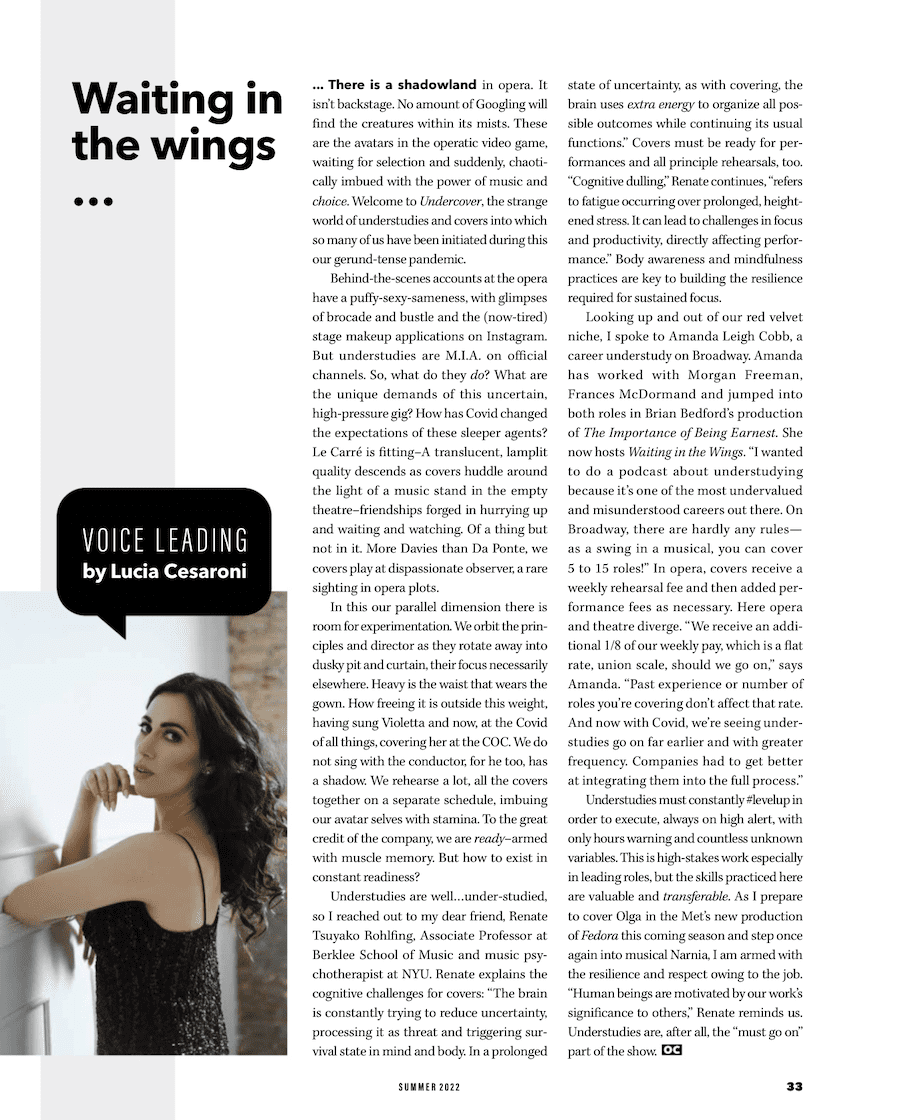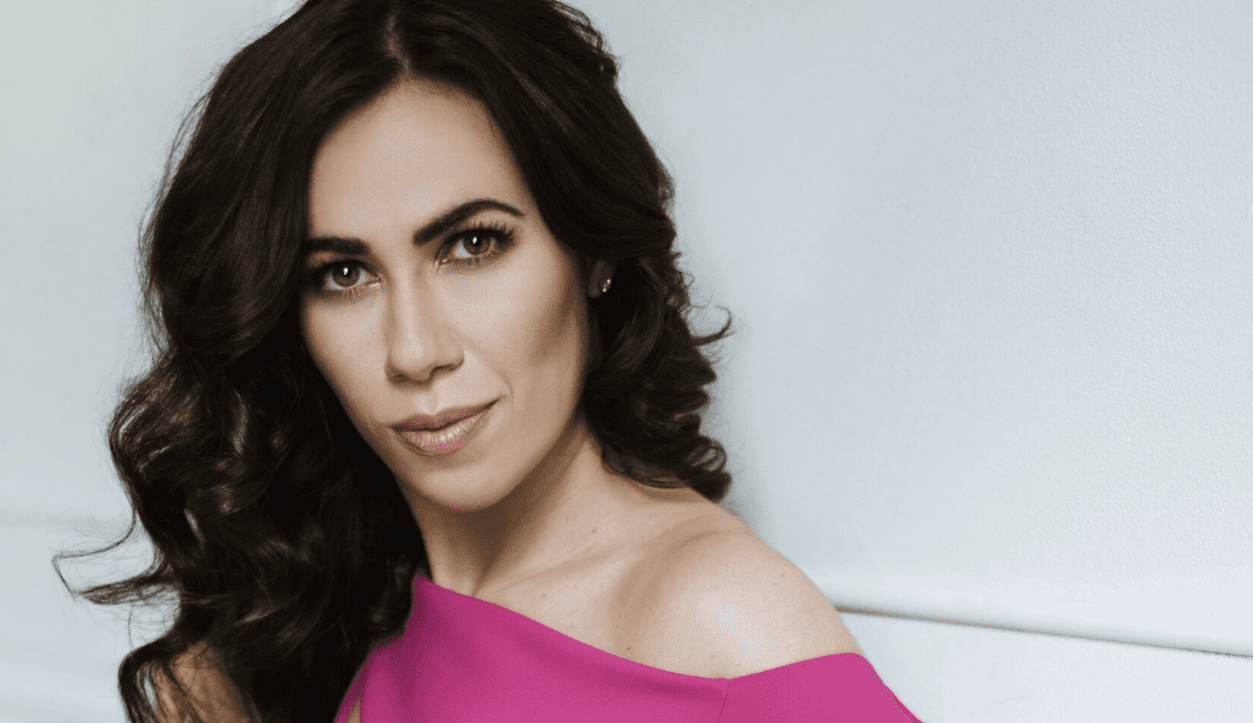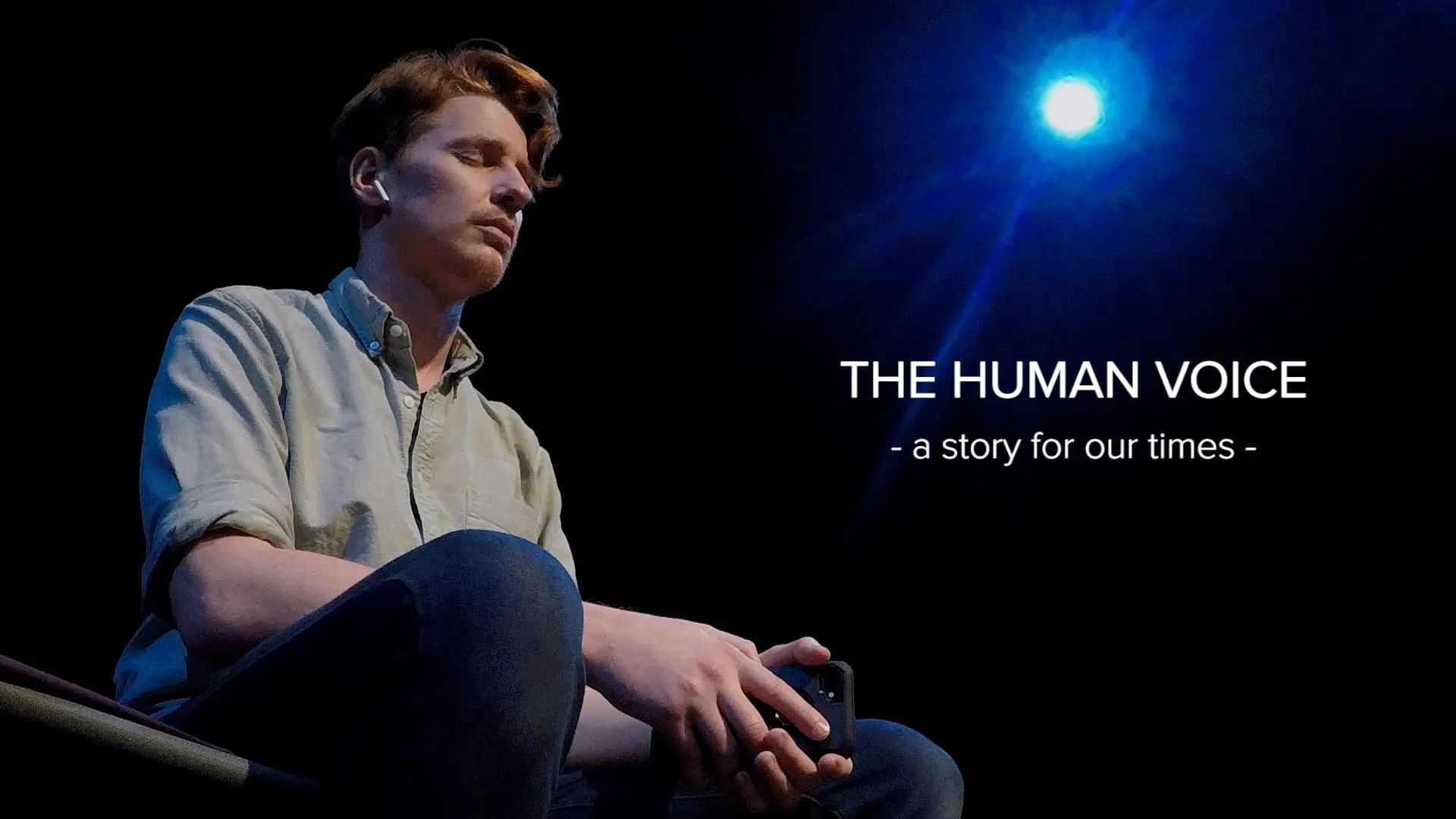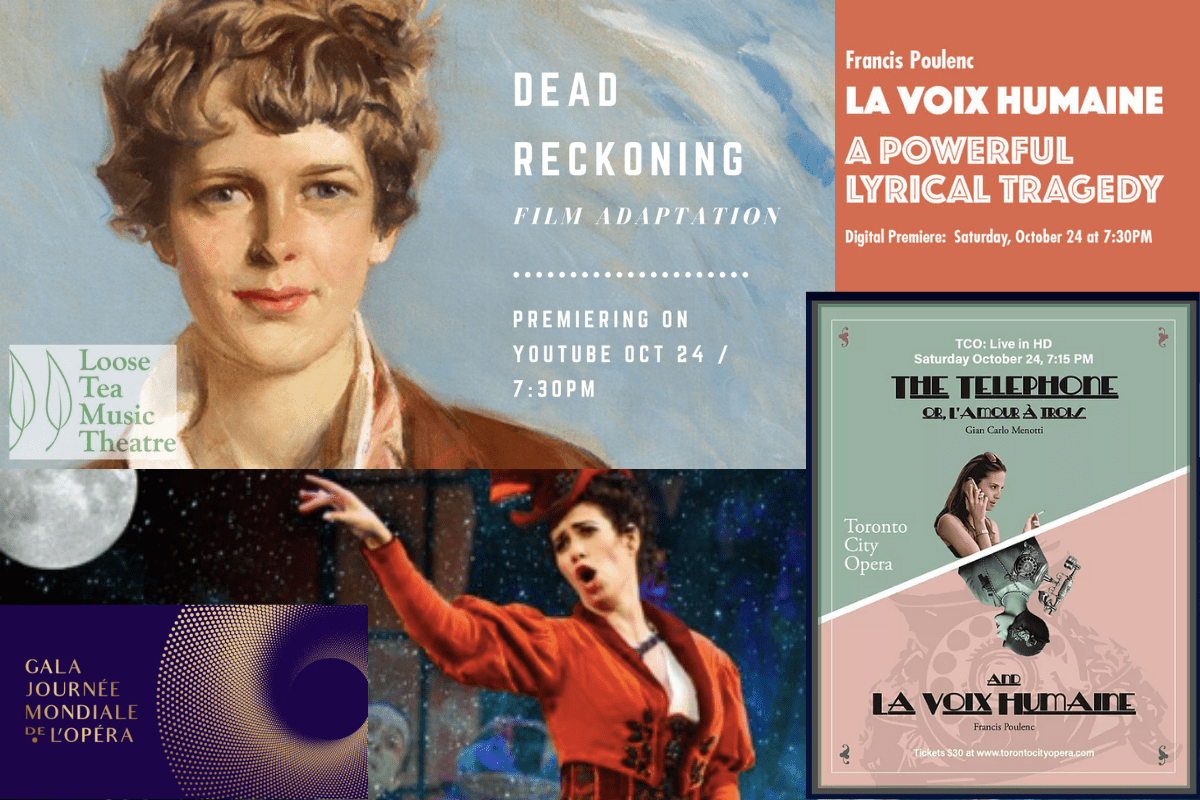
*this text was originally published in the summer 2022 print version of Opera Canada magazine
Opera Canada depends on the generous contributions of its supporters to bring readers outstanding, in-depth coverage of opera in Canada and beyond. Please consider subscribing or donating today.
There is a shadowland in opera. It isn’t backstage. No amount of Googling will find the creatures within its mists. These are the avatars in the operatic video game, waiting for selection and suddenly, chaotically imbued with the power of music and choice. Welcome to Undercover, the strange world of understudies and covers into which so many of us have been initiated during this our gerund-tense pandemic.
Behind-the-scenes accounts at the opera have a puffy-sexy-sameness, with glimpses of brocade and bustle and the (now-tired) stage makeup applications on Instagram. But understudies are M.I.A. on official channels. So, what do they do? What are the unique demands of this uncertain, high-pressure gig? How has Covid changed the expectations of these sleeper agents? Le Carré is fitting–A translucent, lamplit quality descends as covers huddle around the light of a music stand in the empty theatre–friendships forged in hurrying up and waiting and watching. Of a thing but not in it. More Davies than Da Ponte, we covers play at dispassionate observer, a rare sighting in opera plots.
In this our parallel dimension there is room for experimentation. We orbit the principles and director as they rotate away into dusky pit and curtain, their focus necessarily elsewhere. Heavy is the waist that wears the gown. How freeing it is outside this weight, having sung Violetta and now, at the Covid of all things, covering her at the COC. We do not sing with the conductor, for he too, has a shadow. We rehearse a lot, all the covers together on a separate schedule, imbuing our avatar selves with stamina. To the great credit of the company, we are ready–armed with muscle memory. But how to exist in constant readiness?
Understudies are well…under-studied, so I reached out to my dear friend, Renate Tsuyako Rohlfing, Associate Professor at Berklee School of Music and music psychotherapist at NYU. Renate explains the cognitive challenges for covers: “The brain is constantly trying to reduce uncertainty, processing it as threat and triggering survival state in mind and body. In a prolonged state of uncertainty, as with covering, the brain uses extra energy to organize all possible outcomes while continuing its usual functions.” Covers must be ready for performances and all principle rehearsals, too. “Cognitive dulling,” Renate continues, “refers to fatigue occurring over prolonged, heightened stress. It can lead to challenges in focus and productivity, directly affecting performance.” Body awareness and mindfulness practices are key to building the resilience required for sustained focus.
Looking up and out of our red velvet niche, I spoke to Amanda Leigh Cobb, a career understudy on Broadway. Amanda has worked with Morgan Freeman, Frances McDormand and jumped into both roles in Brian Bedford’s production of The Importance of Being Earnest. She now hosts Waiting in the Wings. “I wanted to do a podcast about understudying because it’s one of the most undervalued and misunderstood careers out there. On Broadway, there are hardly any rules—as a swing in a musical, you can cover 5 to 15 roles!” In opera, covers receive a weekly rehearsal fee and then added performance fees as necessary. Here opera and theatre diverge. “We receive an additional 1/8 of our weekly pay, which is a fat rate, union scale, should we go on,” says Amanda. “Past experience or number of roles you’re covering don’t affect that rate. And now with Covid, we’re seeing under-studies go on far earlier and with greater frequency. Companies had to get better at integrating them into the full process.”
Understudies must constantly #levelup in order to execute, always on high alert, with only hours warning and countless unknown variables. This is high-stakes work especially in leading roles, but the skills practiced here are valuable and transferable. As I prepare to cover Olga in the Met’s new production of Fedora this coming season and step once again into musical Narnia, I am armed with the resilience and respect owing to the job. “Human beings are motivated by our work’s significance to others,” Renate reminds us. Understudies are, after all, the “must go on” part of the show.














